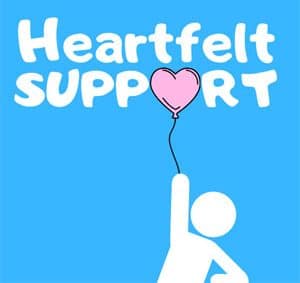My name is Robert and as someone who has played guitar for over 40 years (mostly badly, I admit), it was thrilling for me when here at Heartfelt Support, we had the opportunity to open our music and art centre, because I know I’ve benefitted from playing over the years.
All the benefits that you can get from learning and playing guitar are the same for people with or without disabilities, but for people with disabilities (PWD) there’s the added bonus of alignment with their NDIS goals.
Physical Benefits
Playing guitar boosts your coordination and fine motor skills, using both hands together. Regular practice improves finger dexterity and strength, as your movements become more precise. Good technique means you think about your posture. Playing builds hand and forearm strength. Learning chords and songs exercises your concentration and memory. It can also be a stress-relief activity, helpful for relaxation and mental well-being.
Social Benefits
Playing guitar helps you build connections with others, initially your teacher but maybe with other musicians down the track. Eventually, performing and collaborating will improve your communication and teamwork skills. If you stick with it, the confidence gained from playing boosts your self-esteem. The guitar is a great outlet for creative expression, enhancing your emotional well-being. You could even end up teaching others, if that’s something that appeals to you. And if you sing, even better.
I’ve met people through music I would never have met any other way, it really is great of you are socially awkward (as I am) to have a common interest.
Wait, there could be a problem…
You might be all ready to start learning, all you need is someone to teach you- oh, and a guitar.
And that can be a problem. Many people start on an acoustic guitar. This, for most people, is probably a mistake unless you are learning classical, nylon stringed guitar. I had a cheap acoustic, and it was a terrible instrument.
First, electric guitars generally have lighter strings and lower action, making it easier on your fingers, this not just reduces the initial pain and discomfort of pressing down on the strings, but is way more forgiving when it comes to technique. The amplified sound and versatility of an electric guitar also lets you experiment with a variety of genres and sounds through effects pedals and different amp settings, making your learning experience more dynamic and engaging. You may not be able to play like your favourite guitarist from day one, but you can dial up their tone.
Another key benefit is the ease of practice. Electric guitars can be played quietly with headphones, allowing you to practice without disturbing others, which makes it easier to fit practice sessions into your day, regardless of your living situation. (Personally, I practice daily from 5.30am to 6.30am, and believe me, without headphones this would be controversial to say the least.) Electric guitars also have a slimmer neck, which can be more comfortable for your hands and facilitate faster learning of chords and scales.
But what about the expense?
Not all electric guitars are expensive, but sometimes a cheap one can be another bad option. Poor craftsmanship and materials can lead to poor set up, action and intonation, making the strings harder to press and the notes less accurately pitched. The fretboard might be rougher, causing increased finger fatigue, and low-quality tuners fail to maintain tuning stability, leading to a frequent need for retuning. Additionally, the electronics in a cheaply made guitar might produce a muddier, less crisp sound, making it harder to hear your progress and stay motivated. These disadvantages can hinder your learning, slow down your improvement and discourage you from practising, and when you are starting out, you don’t have the skills to change components or adjust necks.
Let’s sort this for you.
A nice new, quite pricey guitar is maybe your best option, but why would you do that when you start. What of you don’t enjoy it? What if you just don’t have the cash.
A high-quality guitar is ideal, but not everyone can afford it or wants to invest in one initially. That’s why we’ve launched a project to help. We’ve acquired various Artist electric guitars, a good quality Australian-owned brand. We loan them to PWDs learning through us to meet their NDIS goals.
Here’s our loan rack:

So, start learning with us and we’ll loan you one of these between lessons.
You can even swap each time to work out which one works best for you. Problem solved!
There is no charge for the loan service, to you or the NDIS. We offer music options to learn from both therapy (CB) or Core in your plan. You can find out about our music programmes here.
So, no matter what style or styles you want to play, we can sort you with a guitar to suit. There’s no reason not to get started today.
Call us anytime (except between 5.30am and 6.30 am as I will have headphones on)

